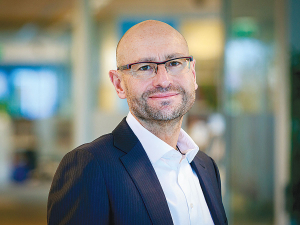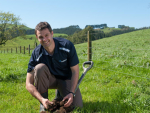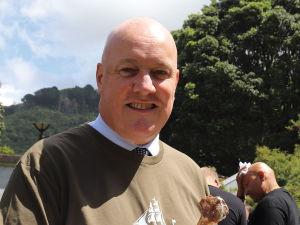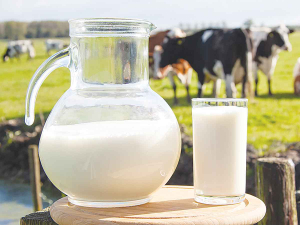Like any other business, the fertiliser co-operative was also reeling from the impact of higher shipping and labour costs and soaring interest rates. Inventory and debt levels also needed controlling.
One year on, Ballance delivered its financial results for the year ending May 31, 2024 - with a closing inventory of 281kt (kilotonne), 37% lower than the prior year, a lower working capital and $69 million reduction in debt.
Wickham, who joined Ballance after a lengthy career with Fonterra, where he was part of the management team, says the first year has been "lots of learning".
"A new industry, new people and there were more challenges than I expected," he told Rural News.
"It just meant a higher focus on efficiency, managing inventory through the supply chain and looking after tha balance sheet for the first year than perhaps I was thinking.
"My initial focus has been on performance of our core functions: maintaining a focus on safer operations, offering meaningful support to our customers, building our capability to ensure a strong team to move us forward."
Read More
A major decision during the year was selling ruminant feed manufacturer SealesWinslow to Farmlands.
Wickham explains that SealesWinslow was a loss-making business for Ballance.
It was offloaded to Farmlands which has other brands in its feed portfolio and has a better opportunity to run the business. The sale also contributed $28m towards reducing Ballance's debt.
The rest of the debt payment came from selling down inventory.
"We had a significant drive through the year to sell down inventory because it was too high and higher priced. By selling that inventory down and freeing that working capital, and by selling SealesWinslow, we retired some debt which is always nice to do," he says.
Overall, Wickham is happy with the co-op's balance sheet and the debt-to-equity ratio.
While he'll be happier to see the debt levels down further, recent drops in the interest rates will be helpful.
"But this year we will see a further improvement in the balance sheet."
Wickham says Ballance has no plans to close any plants but is looking at what future products the plants could manufacture. Competitor Ravensdown is closing its Dunedin superphosphate plant and will continue operatios as a port store and distribution centre. Both co-ops will be left with one plant each in the North and South Islands.
Wickham says logistically it makes good sense because of costs associated with distributing bulk products.
"Our focus is on safety, reliability and efficiency and we will continue driving that."
Wickham says Ballance is looking into whether the products they manufacture today will be products required by farmers in the future.
"We're looking at different type of products, more denser products, so if you have more nutrients per tonne product you can reduce your distribution costs and storage needs and still deliver benefits for farmer growers.
"So, changing the nature of how we use the assets is potentially on the cards."
Ballance 2024 Results
- Revenue down to $929 million, reflecting lower commodity prices
- Profit before tax $17.2m
- Closing inventory of 281kt, 37% lower than prior year
- Lower working capital and sale of SealesWinslow
- Continued reinvestment into co-operative assets with $69 million of capital expenditure.



















